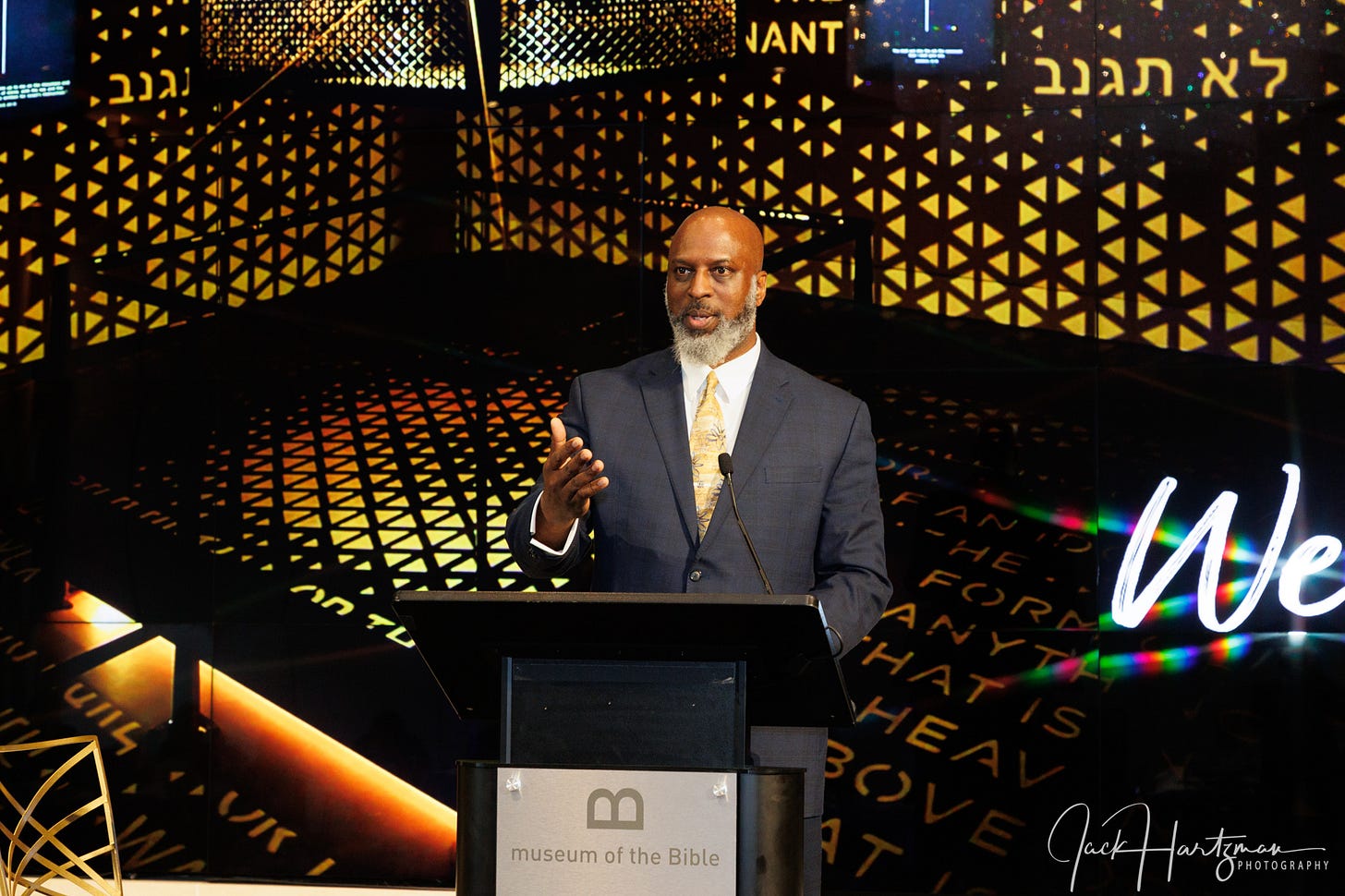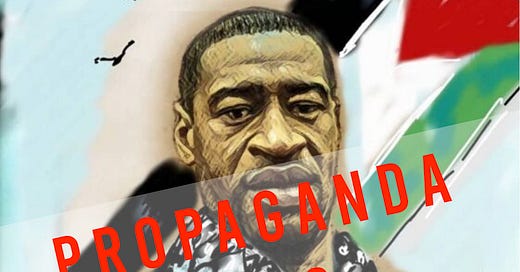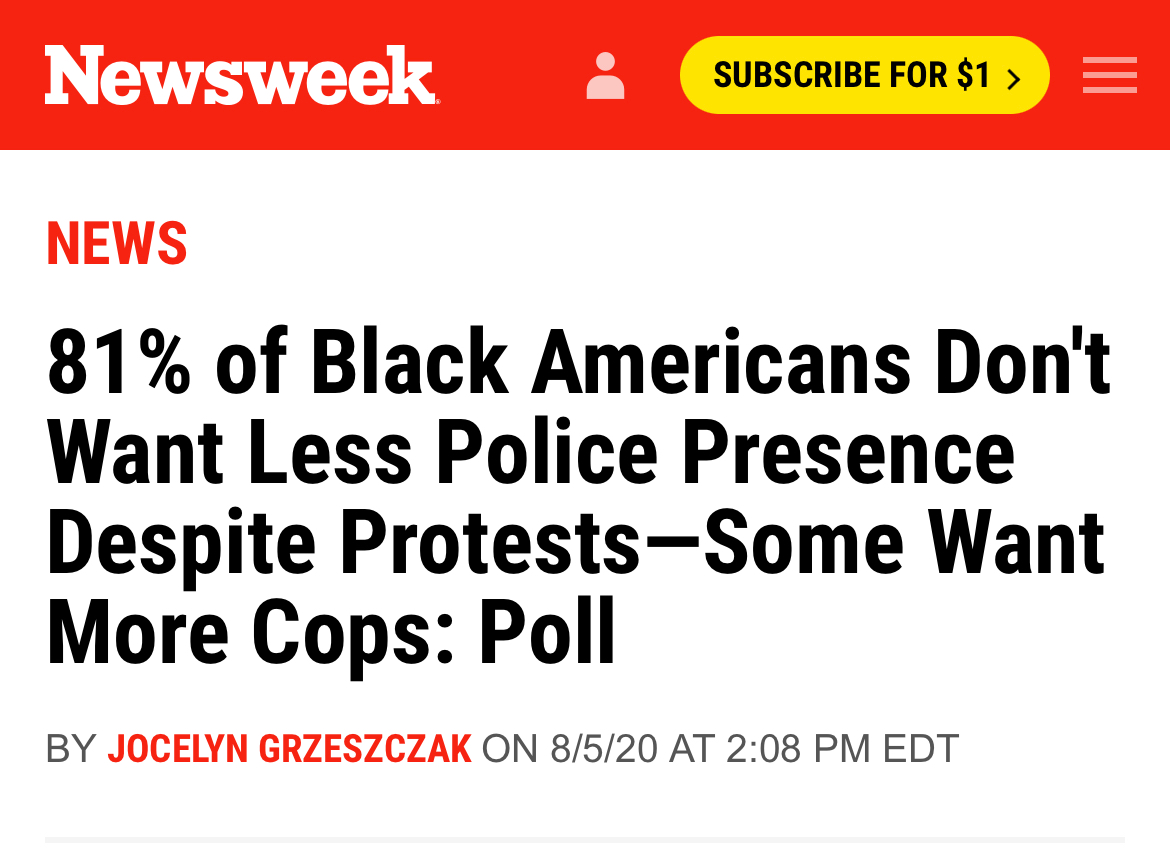In 2019, LifeWay Research sponsored by The Philos Project published a study entitled African American Attitudes Toward Israel. While it is best to consider the findings of the study within the broader context of Israel support in America (which we will), there are several key takeaways. First, the LifeWay survey found that 52% of the 1,019 Black Americans polled, “support Israel’s statehood” while 18% did not, and 30% were unsure. Among the 52% who expressed support for the Jewish State, 71% did so because “every nation has the right to exist.” The next most popular reasons to support Israel were:
Israel is the historic Jewish homeland — 30%
Jesus was a Jew — 28%
Israel is important for fulfilling biblical prophecy — 25%
The Bible says Christians should support Israel — 24%
According to the LifeWay study, one-quarter to nearly one-third of Black American Israel supporters do so because of scripture. Also, nearly one-third of all participants had no definitive opinion on Israel.
In 2021, a Gallup poll found that 75% of Americans viewed Israel favorably and 64% said their “Mideast sympathies” were with the Israelis, as opposed to 25% who sympathized with the Palestinians. Here we confront the first challenge in interpreting survey numbers as it is not clear exactly what distinctions the pollsters made between “favorable ratings” and “Mideast sympathies.” That said, in comparing both the 2021 Gallup poll and the 2019 LifeWay poll, support for Israel is stronger among non-Black Americans than Black Americans. In the second edition of my book, Zionism & the Black Church, I address the higher levels of Israel criticism and even antisemitism in the Black community.
It has become quite common to meet Black people, especially on college campuses, who have a negative view of Israel, if not Jews in general. As Jamie Kirchick noted in his 2018 Commentary article The Rise of Black Anti-Semitism:
Attitudinal surveys conducted by the ADL [Anti-Defamation League] consistently show that African Americans harbor “anti-Semitic proclivities” at a rate significantly higher than the general population (23 percent and 14 percent respectively in 2016).[1]
Much of this is the effect of the anti-Israel miseducation directed toward the Black community. In 1992, that same ADL survey found antisemitism in the Black community as high as 37%.[2]
Over my 30+ years as an intentional Christian Zionist, and my nearly 10 years as an Israel advocate – primarily in the Black American and African communities – I’ve learned that the No. 1 priority is education. And because a majority of Black Americans and Africans are churchgoers, that education must begin with the bible, particularly Israel’s ancient relationship with Africa. Once the biblical foundation is established, education on Israel and the Jewish people must also prioritize the historic Black-Jewish synergy in the United States (academics, civil rights, etc.), Israel’s relationship with Africa today, the issue of Palestinian human rights, and the tactics of Israel-haters and antisemites. For the purposes of this piece, we will focus on Israel-haters and antisemites.
The 2019 LifeWay survey on Black American attitudes toward Israel included a three-question portion on Black Lives Matter. On one hand, the inclusion of BLM makes sense as it identified itself as a pro-Palestinian (read: anti-Israel) organization shortly after its founding in 2013. On the other hand, the inclusion of BLM in a survey on Black American attitudes toward Israel reveals a belief that BLM has in fact impacted Black attitudes toward Israel – or that it is BLM’s desire to do so. Both assumptions would be incorrect. Let’s begin with the survey’s introduction to the BLM questions:
The Black Lives Matter movement’s platform accuses Israel of genocide and apartheid against the Palestinian people and calls on people to boycott, divest from, and sanction the country of Israel.
Being an admittedly Marxist organization, BLM thrives on disinformation, which includes its name. Most people — regardless of ethnicity — cannot distinguish between the phrase Black Lives Matter, the Movement for Black Lives manifesto, the Black Lives Matter Global Network Foundation (BLMGNF), or the hashtag #BlackLivesMatter. For most people, “Black Lives Matter!” means the lives of Black people are as important as everyone else’s. No fair-minded person would disagree with that sentiment, and BLM manipulates this fact. Any valid criticism of BLM — including its obsession with attacking Israel — is met with accusations of, Racist! Bigot! Fascist! White supremacist! House Negro! (If you’re Black, of course). Imperialist! Or Zionist! So, for the purposes of understanding the survey, we have no way of knowing how the participants originally felt about BLM or its many faces. That said, 70% said they were unaware of BLM’s anti-Israel platform. (I’ve been conducting unscientific polls of Black and African congregants across the country since 2014 and this percentage is consistent with what I’ve found. Generally, no more than 20% of the group I’ve asked are aware of BLM’s position on Israel). Bearing all this in mind, the survey’s other two questions – 1) have your thoughts on BLM changed? and 2) have your thoughts on the Israeli-Palestinian issue changed? — become moot. The participants have essentially been asked, “do you still feel Black lives matter even though some BLM leaders/members are accusing Israel of bad things?” As you can see, the two issues have nothing to do with each other, just like the Israeli-Palestinian conflict has nothing to do with racism or police brutality in America.
The Institute for Black Solidarity with Israel (IBSI) has observed and researched BLM and its impact since the beginning of its anti-Israel activity in 2014 and drew this conclusion in 2016: BLM’s antisemitism has had a negligible effect on the Black community, but it wasn’t targeting the Black community. It was quietly targeting school and university curricula, news outlets, local and national politicians, and social media. And, if the goal was to establish BLM as a formidable brand name – regardless of its antisemitic campaign against Israel and the Jewish people – it worked. Therefore, to truly understand the means and objectives of BLM, one cannot compare it to a civil rights organization Iike the NAACP or the Urban League. Rather, one must compare BLM to its ideological kin, the PLO (Palestine Liberation Organization), and its affiliates.
Beginning in the late 1960s, Black Americans (as well as Black Africans) have been embroiled in the Israeli-Palestinian conflict. This was not by choice but by default. The ideological weapon used by Israel’s enemies was the smearing of the Jewish State as racist, segregationist, or apartheid, prompting Black Americans and South Africans of conscience to rebuke those false claims. However, in order for propaganda to have maximum impact it has to be constantly repeated. As I explain in Zionism & the Black Church, no one embodied the repetitious spewing of Jewish blood libel masked as justice better than PLO Chairman, Yasser Arafat. The following is from Arafat’s speech to the United Nations General Assembly in 1975:
The Zionist entity clings tenaciously to occupied Arab territory; zionism persists, in its aggressions against us and our territory.
The world is in need of tremendous efforts if its aspirations to peace, freedom, justice, equality and development are to be realized if its struggle is to be victorious over colonialism, imperialism, neo-colonialism and racism in all its forms, including zionism.
After Arafat’s UN address, Black American civil rights leader, Bayard Rustin wrote an article in response.
What, then of the PLO’s charge that Israel is a “racist” nation. This accusation has been repeated so often - Arafat made numerous references to Israeli “racism” and “colonialism” in his U.N. Address - that it has achieved a measure of acceptance worldwide, and in the American black community.
Rustin would go on to found BASIC, Black Americans to Support Israel Committee in 1975, heeding the call for Black voices to both defend Israel as well as the integrity of the true fight for justice.
Like Yasser Arafat and the PLO, BLM has never been truly concerned with the thoughts and perspectives of Black people. For BLM, Black people – especially those who were victims of police violence – are a means to an end. This is evident in everything from BLM’s attack on Black fathers to its signature issue, #DefundthePolice. BLM conveniently unveiled its #DefundthePolice agenda in May 2020, the very month George Floyd was killed by Minneapolis Police Officer, Derek Chauvin. In August 2020, Newsweek published an article entitled, 81% of Black Americans Don't Want Less Police Presence Despite Protests—Some Want More Cops: Poll.
A Gallup poll conducted from June 23 to July 6 surveying more than 36,000 U.S. adults found that 61 percent of Black Americans said they'd like police to spend the same amount of time in their community, while 20 percent answered they'd like to see more police, totaling 81 percent. Just 19 percent of those polled said they wanted police to spend less time in their area.
Black Americans' responses to the question were nearly on par with the national average, in which 67 percent of all U.S. adults said they wanted police presence to remain the same and 19 percent said they wanted it to increase.
Of the many facets to BLM’s work ostensibly on behalf of the Black community, arguably none has done more damage than the nationwide demonization of law enforcement. Jason Riley writing for the Wall Street Journal in December 2021 explained.
Murder rose by nearly 30% [in 2020], and Americans have been making it as clear as can be that they want more and better policing. The incoming mayors of Atlanta, New York and Seattle ran campaigns that prioritized public safety. A ballot initiative in Minneapolis that would have dismantled the police department was defeated soundly, and some of the strongest opposition came from low-income black communities. “Black lives need to be valued not just when unjustly taken by the police, but when we are alive and demanding our right to be heard, to breathe, to live in safe neighborhoods and to enjoy the full benefits of our status as American citizens,” explained a civil-rights activist from Minneapolis in a New York Times op-ed.
How you may ask, is BLM’s #DefundthePolice campaign connected to smearing Israel? BLM, along with its partners like the equally deceptively named, Jewish Voice for Peace, has been blaming Israel for police violence in America with their Deadly Exchange movement. After the high-profile deaths of Mike Brown (Ferguson), Breanna Taylor (Louisville), and George Floyd, BLM used the one-two punch of Deadly Exchange and #DefundthePolice to help force conditions in our cities that the vast majority of Black Americans vehemently opposed. BLM doesn’t care.
Again, like the PLO, BLM is more than willing to place the lives of already vulnerable people at even greater risk of harm and death. (Yasser Arafat infamously used child soldiers to attack Israeli troops and civilians. Today, Hamas in Gaza continues Arafat’s brutal legacy). Like the PLO and Hamas, BLM leaders are willing to take the millions donated in good faith and spend it on themselves. Like the PLO and Hamas, BLM leaders verbally attack the enemy (Zionists/White law enforcement), then purchase expensive homes in high security, virtually all-White neighborhoods. Then, with the street cred that BLM builds up by feigning concern for the Black community, it pursues its Marxist, anti-American, anti-Zionist agenda. Perhaps this is what Nihad Awad, Co-Founder and Executive Director of the Council on American Islamic Relations (CAIR) meant when he said, “Black Lives Matter is our matter. Black Lives Matter is our campaign.” CAIR has been closely linked to Hamas.
The costliest miscalculation made within the broader pro-Israel community was dismissing, excusing, or even endorsing the antisemitic Black Lives Matter. And, especially with the adoption of California’s antisemitic Critical Ethnic Studies throughout the country, the resulting effects will be felt for years to come. Further, the many scandals involving BLM’s money handling have done nothing to diminish its influence or its access to cash. In a May 2022 York Dispatch article, it was reported that BLM has some $42 million in assets, and is still building its organization. Enormous wealth despite the fact that, according to a recent poll published in Newsweek, support for Black Lives Matter has plummeted among Black Americans. Like the LifeWay pollsters, someone at Newsweek may have assumed that BLM was concerned about what Black people think. Yasser Arafat died in possession of billions of international aid money. Palestinian Authority President, Mahmoud Abbas is reportedly worth hundreds of millions, if not more. In 2012, a Jordanian website reported that former Hamas leader, Khaled Mashal, “had control of a massive $2.6 billion.” No informed person believes that those men are/were truly concerned about the Palestinian people. The BLM parallels are endless, and BLM isn’t going away any time soon. Besides, if attacking Israel pays this well, why would they stop?
As for the ongoing battle against antisemitism and Israel-hatred, a study from Tel Aviv University reveals that they rose dramatically in 2021, and suggests that the fight against global antisemitism ‘is failing.’ Though some dispute it, others are even reporting a drop in young evangelical support for Israel. Many believe that woke politics and theology could be at the forefront of this shift, and no entity embodies that mindset more than BLM.

Last month, I had the great honor of addressing the first annual conference of the Zionist Rabbinic Coalition. During my speech, I told them about an incident that happened to my wife, Valerie, when she was in high school. As she drove home after school, she noticed smoke in the distance near her house. Assuming the fire was elsewhere, she drove into the garage, walked into the family room, and went to the kitchen. There was no sign of smoke or fire anywhere, but there was a faint, low rumbling noise. Valerie then walked toward the front door, looked upstairs, and saw that her room was engulfed in flames and thick black smoke was covering the rest of the upper level. She rushed out of the house and found that a neighbor had already called the fire department. Had my wife stayed on the bottom floor of her house to get a glass of water or make a sandwich, she may not have lived long enough for us to get married.
“The house is on fire,” I told the rabbis, “and most people are oblivious.”
[1] From “The Rise of Black Anti-Semitism,” by J. Kirchick, 2018, Commentary Magazine. https://www.commentarymagazine.com/articles/james-kirchick/rise-black-anti-semitism/.
[2] From “Black-Jewish relations: ADL survey finds anti-Semitism high in black community,” by Jewish Virtual Library, 1998, Jewish Virtual Library. https://www.jewishvirtuallibrary.org/adl-survey-finds-anti-semitism-high-in-black-community.







For the truth about Floyd and BLM, I’ll look here in Dumisani’s substack.
Did I miss your discussion of the Nation of Islam and of Al Sharpton? And going further back, the Black Panther movement (keeping in mind that Stokely Carmichael came around in later life).?